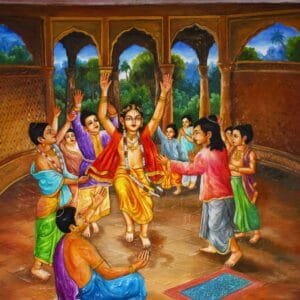Gurukul Education System in Ancient India
The Gurukul education system is an integral part of the traditional Indian schooling system that was prevalent in ancient India. It was a unique educational model that emphasized holistic learning and character development. Let’s delve into the significance and evolution of this ancient educational system.

Overview of Gurukul Education System
Definition of Gurukul education system: Gurukul refers to a residential schooling system where students lived with their guru (teacher) to receive education.
Brief history of Gurukuls in ancient India: Gurukuls date back to the Vedic period and played a vital role in imparting knowledge and preserving cultural heritage.
Importance of Gurukul Education
Values and principles emphasized in Gurukul education: Gurukuls focused on instilling moral values, ethics, and a sense of community in students.
Role of Gurukuls in shaping the society and culture: The Gurukul system contributed to the holistic development of individuals, creating responsible citizens.
Evolution and Decline of Gurukul Education
Factors leading to the evolution of Gurukuls: Changes in societal needs and advancements in educational methods influenced the transformation of Gurukul education.
Reasons for the decline of Gurukul education system: With the introduction of modern educational institutions, the traditional Gurukul system gradually declined.
Components of Gurukul Education System
I. Structure of Gurukul Education
Student-teacher Relationship in Gurukuls
Guru-shishya relationship in India was the cornerstone of Gurukul education
Guru played a multifaceted role as a mentor, guide, and spiritual authority
Curriculum and Subjects Taught in Gurukuls
Rooted in Vedic education system, Gurukuls focused on holistic learning
Emphasis on subjects like Vedas, scriptures, philosophy, arts, and warfare
II. Teaching Methods in Gurukul Education
Focus on Experiential Learning and Practical Knowledge
Benefits of experiential learning were central to Gurukul pedagogy
Students learned through observation, participation, and hands-on experience
Use of Storytelling, Debates, and Discussions in Teaching
Role of storytelling in Indian education enriched learning experiences
Debates and discussions encouraged critical thinking and intellectual growth
III. Daily Life in Gurukul
Daily Routine of Students and Teachers
Gurukul life revolved around a structured daily schedule
Students engaged in morning rituals, studies, physical activities, and self-reflection
Importance of Discipline and Rituals in Gurukul
Discipline instilled values of punctuality, respect, and self-discipline
Rituals connected students with cultural and spiritual practices
IV. Role of Guru in Gurukul Education
Guru’s Significance in Gurukul System
Importance of Guru in Hinduism extended beyond academic guidance
Gurus imparted moral values, ethical principles, and life skills to students
Guru-shishya Parampara and Its Impact
Legacy of Gurukul in Indian culture stems from the revered Guru-shishya tradition
Guru-shishya relationship fostered a deep sense of reverence, loyalty, and knowledge transfer
Frequently Asked Questions (FAQs) on Gurukul Education System in Ancient India
What is the Gurukul system in ancient India?
The Gurukul system in ancient India was a traditional form of education where students lived with their gurus in ashrams to receive knowledge and guidance. It focused on holistic education and the imparting of values and life skills along with academic learning.
What subjects were taught in Gurukuls in ancient India?
Subjects taught in Gurukuls included Vedic scriptures, mathematics, astronomy, philosophy, ethics, warfare, and other practical skills relevant to that era. The curriculum aimed at providing a well-rounded education to the students.
How were students selected to study in Gurukuls?
Students were usually selected based on their family background, social status, and willingness to commit to the rigorous lifestyle of a Gurukul. It was a privilege to study in a Gurukul, and students had to demonstrate dedication and respect for their guru.
What was the role of the guru in the Gurukul system?
The guru played a pivotal role in the Gurukul system as a teacher, mentor, and spiritual guide. They were revered figures who imparted knowledge, values, and discipline to the students, shaping their overall character and personality.
How did the Gurukul education system decline in ancient India?
Various factors such as societal changes, foreign invasions, and the introduction of formal schooling systems by colonial powers influenced the decline of the Gurukul system in ancient India. As a result, traditional Gurukuls gradually lost their prominence.
Conclusion:
The Gurukul education system in ancient India embodied a holistic approach to learning, emphasizing values, practical skills, and spiritual development alongside academic knowledge. The legacy of Gurukul education continues to inspire modern educational practices, highlighting the importance of personalized mentorship, experiential learning, and the deep bond between a guru and their shishya. By understanding the rich heritage of Gurukul education, we can explore valuable insights to enhance contemporary educational systems and nurture well-rounded individuals.




